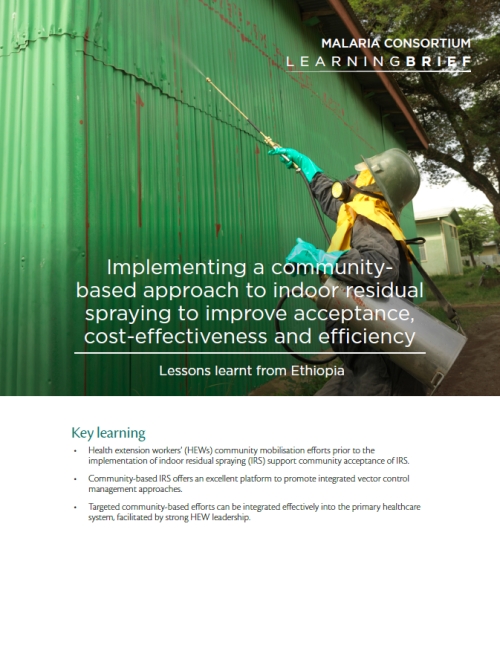Publications

Publication Date:
26/02/2021
Type:
Learning brief

Implementing a community-based approach to indoor residual spraying to improve acceptance, cost-effectiveness and efficiency
Publication Date:
26/02/2021
Type:
Learning brief

Publication Date:
26/02/2021
Type:
Learning brief
Publication

Implementing a community-based approach to indoor residual spraying to improve acceptance, cost-effectiveness and efficiency
Publication Date:26/02/2021
Type:
Learning brief
With support from the James Percy Foundation, we helped to implement a community-based indoor residual spraying campaign in two districts in Ethiopia.
In Ethiopia, malaria poses a significant threat to public health, with an estimated 52 percent of the population at risk of malaria infection. The Ministry of Health recommends campaign-based, targeted indoor residual spraying (IRS) as a key strategy for malaria prevention, control and elimination in the country. With support from the James Percy Foundation, we carried out a community-based IRS campaign in the districts of Boloso Sore and Damot Sore between March 2019 and February 2021. This learning brief captures our learning around the opportunities and challenges associated with a community-based IRS model.
Country: Ethiopia
Keywords: Capacity development | Community delivery | Surveillance | Malaria | Vector control | SDGs
« Back to Publications